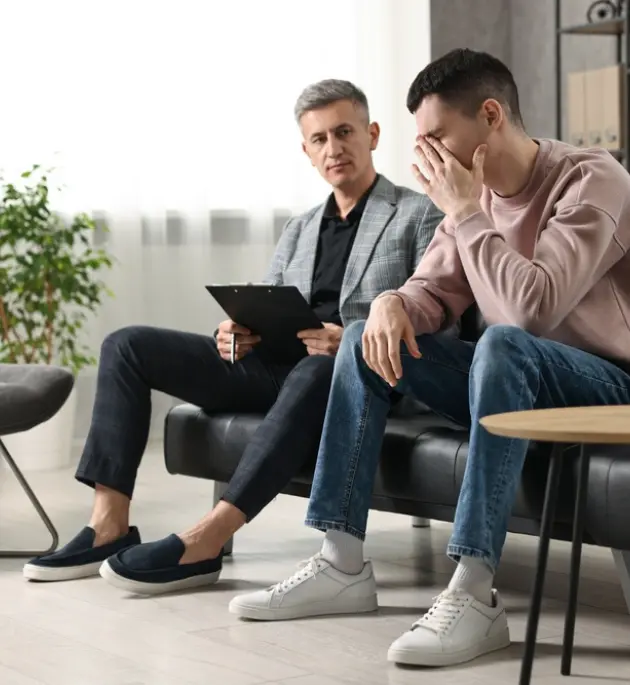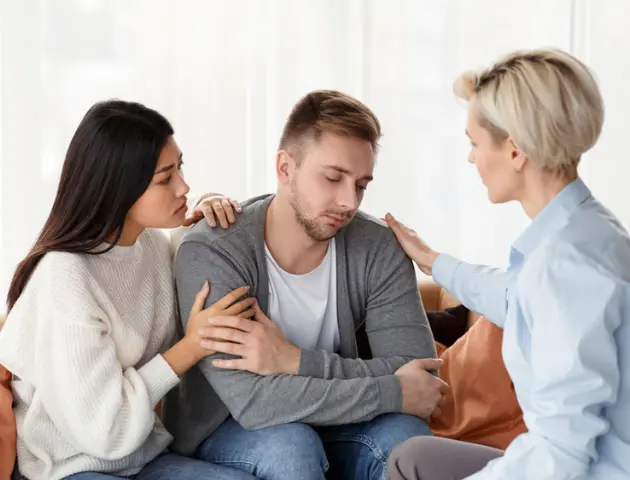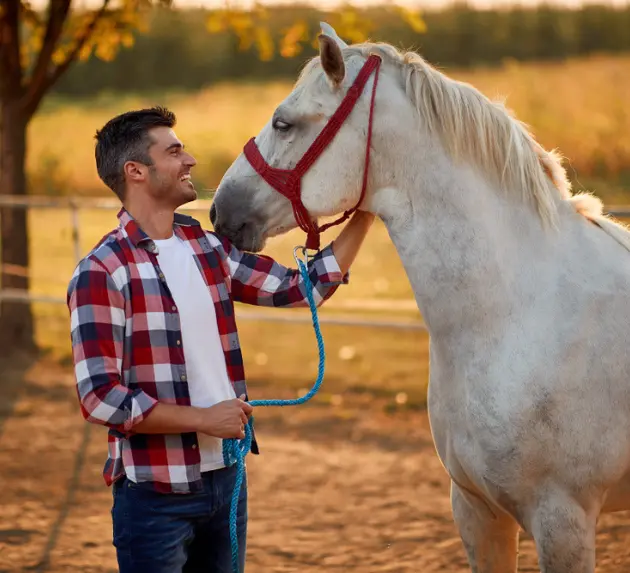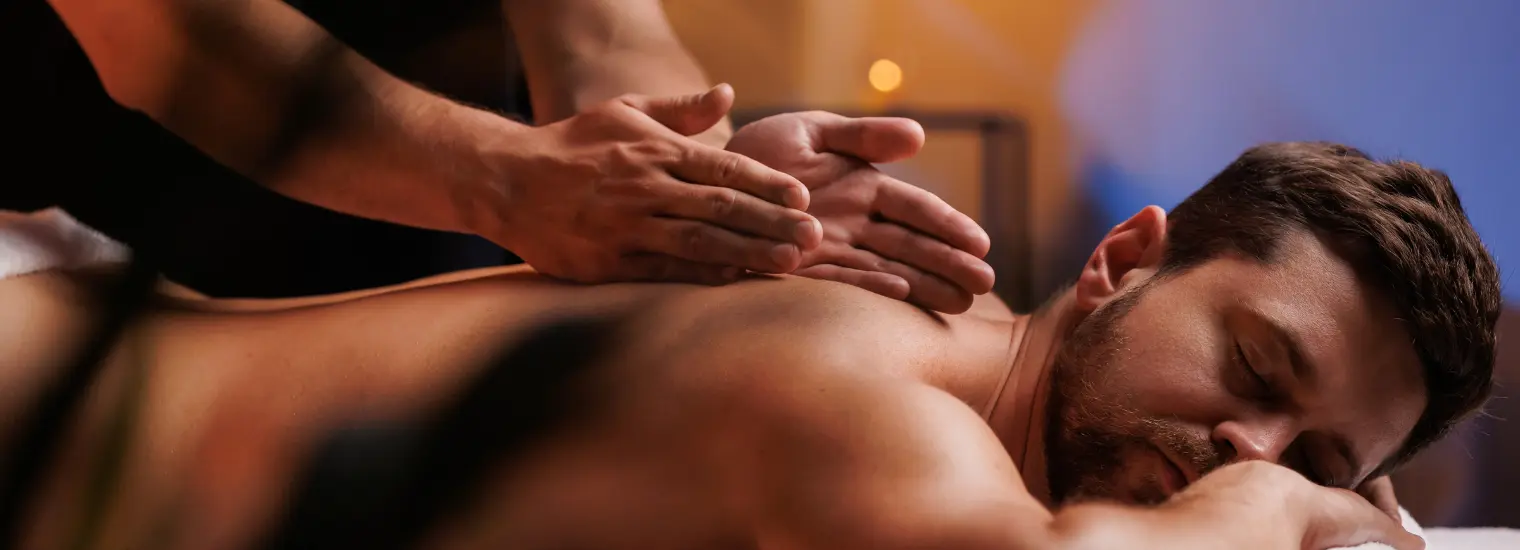Getting Holistic Addiction Treatment in GA at Ingrained Recovery
When it comes to substance abuse treatment, you want more than just the bare minimum of services that promise to help you live life sober. Ingrained Recovery offers a holistic rehab in Georgia that gives you everything you need to learn how to live life without alcohol or drugs.
But what can you expect from a robust treatment program at our rehab facility?
We pride ourselves on offering the very best of clinical help with individual therapy, group counseling, family therapy, and medication-assisted treatment. Beyond these elements, we offer a comprehensive approach to healing with equine therapy, art and music therapy, yoga therapy, and massage therapy.
All of this works together at Ingrained to give you the exact help you need before you transition from residential treatment to outpatient programs. Keep reading to learn more about what you can expect from a holistic alcohol or drug rehab in general, as well as provide details on our upscale treatment setting in Georgia.
Get Effective Treatment Programs at Ingrained Recovery

Getting Clinical Help for Substance Abuse and Holistic Recovery
While many people who want holistic recovery are thinking of ancillary therapies like yoga and art, you don’t want to discount the traditional therapies that underpin a successful recovery program.
Here are some of the treatment methods we use in our drug and alcohol rehab.
Individual Therapy in a Variety of Modalities
Not everyone responds to the same techniques and tactics when it comes to addiction recovery. Your experience of therapy is going to be unique, and our clinicians are trained to tailor their approach to the client instead of forcing everyone into a cookie-cutter approach.
Many clinicians will start with cognitive behavioral therapy because it helps to establish a framework for making better decisions. It dives deep into how your thoughts and feelings influence your actions. The next step might be dialectical behavioral therapy where you learn how to utilize mindfulness to make a better choice.
Other modes of therapy can include motivational interviewing or Acceptance and Commitment therapy. When used together, the synthesis of different approaches gives you all the tools you need to conquer substance abuse issues.
Group Counseling for Peer Support
Part of a holistic treatment program is the ability to connect with your peers to get support, bounce ideas off each other, and learn more about what drives you to use drugs and alcohol. Group therapy allows you to hear what works for other people, get more ideas, and have a solid sounding board.
Plus, some skills are best taught in a group setting like dialectical behavioral therapy skills. You can learn and practice mindfulness alongside your peers.
Of course, there are other types of groups that you might utilize in addiction treatment. Most notably, people tend to find success with Twelve Step meetings like Alcoholics Anonymous or Narcotics Anonymous. The use of these treatment programs can continue into your outpatient treatment when you transition to local resources.
Medication-Assisted Treatment for Comfort and Mental Health Support
Sometimes, there is a need for prescription drugs that can help you face the struggles of daily life. In the beginning, we may prescribe something for you during medical detox to help you become more comfortable. We can help with nausea, insomnia, and anxiety to name a few physical symptoms of detox.
As you progress away from your alcohol or drug addiction, we may uncover mental health issues that could benefit from prescription drugs. They can help with depression, anxiety, bipolar disorder, and even PTSD depending on your background and your unique struggles.
This could lay the framework for you to find some relief from mental health issues so that you can focus on your drug and alcohol rehab programs more fully.
Family Therapy to Surround You With Support
We understand that eventually, you are going to our Georgia recovery center. When you do, you will be back in the same environment that once led to your substance abuse. Even if you remain in a local intensive outpatient program, you’ll need some support from loved ones to continue.
Family therapy allows you to have a safe space to express your concerns over leaving our facility. Our clinicians can help you advocate for your needs, let family members know how they enable or support your addiction unwittingly, and give you the support you need to land safely back home.
Discussing these intimate issues with your family and close loved ones can be extremely challenging. A safe environment like the one you’ll find at Ingrained Recovery can help people set themselves up for a more successful transition back home with some of these tough sessions.

The Complementary Therapies Available in Holistic Drug Rehab Centers
In addition to the more standard therapies that you’ll receive as part of a substance abuse treatment program, we also believe in treating the whole person. Our holistic drug rehab offers an array of new and novel therapies to complement your treatment programs.
These are just some of the activities and therapies you might take part in at our addiction treatment center.
Art Therapy to Relearn Healthy Self-Expression
The way that you communicate with others outside of your addiction treatment providers matters for your long-term recovery. One way that we can equip you for the future in our holistic drug rehab is via art therapy. Art can help in the treatment of mental health disorders as well as substance abuse.
Art therapy work at Ingrained focuses primarily on allowing clients to express themselves in new ways. They may draw pictures of situations and events that happened to them in the past, create abstract art that represents how they feel right now, or journal creatively about their innermost feelings.
The result is that they learn a brand-new means of non-verbal expression of feelings. But that isn’t the only reason to take part in an art therapy program. Research has shown that art therapy can decrease denial in your situation, reduce opposition to treatment, help group discussions, and reduce shame.
Get Proven Detox and Rehab Options at Ingrained

Equine Therapy to Improve and Shape Mental Health
Ingrained Recovery is proud to offer equine-assisted therapy as part of our residential treatment. We are situated on a fifty-acre campus that is home to a beautiful herd of horses who can help you learn emotional resilience and improve mental health.
Many people love this aspect of our treatment program because it allows them a break from the more standard drug and alcohol addiction treatments. Instead of being in an enclosed space for individual therapy, you’ll be in the great outdoors caring for a horse’s basic needs: grooming, feeding, and even exercising them.
Research into the benefits of equine therapies has found that horses can help not only improve your overall mental health but also improve treatment retention. Other benefits of horses in your programs can include positive affect, motivation to continue treatment programs, and increased self-efficacy.
On top of these benefits, you may find that it teaches resilience and gives you an outlet for extreme emotions. It’s something you can continue when you leave Ingrained.
Music Therapy for Emotional Changes and Resilience
Beyond art therapy, other holistic treatment options can include a robust music therapy program. You can experience this in multiple ways: writing your own songs, playing an instrument, listening to music, and any other creative outlet that allows you to explore song, rhythm, and percussion.
What are the benefits of music therapies for your drug and alcohol addiction or mental health?
Writing music and lyrics can help you to get the feelings out of your head and onto paper, leading to an emotional release. Playing an instrument like the drums can lead to relaxation.
But music therapy has a serious benefit for your mental health, regardless of the activity. You’ll find that you have less anxiety, depression, anger, and stress following a session. It gives the space and clarity that you might need to progress in your substance abuse treatment.
Yoga Therapy for Improved Mood
Getting your body to move and stretch is an important component of treatment, and it’s why we include it in our holistic therapies. There are lots of different aspects of yoga that you might pursue: those that get the heart pumping such as Ashtanga or Vinyasa yoga, those that tend toward relaxation like Yoga Nidra, and everything in between.
But what does yoga therapy do for your substance abuse treatment?
The first and perhaps most important thing that it does is improve your mood, evidenced by lower scores on the Beck Depression Inventory. It also reduces cortisol levels and certain hormone levels which are associated with high levels of stress.
Not only does it result in higher mood status, but it also grants you a better quality of life overall.
Massage Therapy to Reduce Chronic Pain

For many people, they might have started using drugs and alcohol because of a chronic pain issue. Over time, they started to use it as a way to cope with difficult emotions. Massage therapy can be another key way to reconnect with the body and alleviate some pain.
When you turn to substances, your brain gets an almost instant spike of dopamine that makes you feel good about your choices. When you lay on the table for a deep tissue massage, you get that same hit of dopamine with a much healthier outcome. Massage also reduces stress and anxiety which can give you pause before turning to substance abuse to cope.
Depending on your issues with chronic pain, you might be able to alleviate some of it temporarily with the right massage. It may not be a long-term solution for your issue, but it can help in the short term.
Not to mention, getting a massage is a great form of self-care that can make you feel good about your choices.
Time in Nature for Improved Mental Health
While there’s something to be said for structured therapies that can aid in your long-term recovery, a little downtime can also give you a boost when used properly. Ingrained Recovery sits on a sprawling fifty-acre campus that you can explore in between sessions and therapies.
You’ll find plenty of places where you can walk, sit and meditate, and just relax.
Nature offers a natural way for you to lessen anxiety and lower your cortisol levels. Other effects of experiencing green space include improvements in your thought process, better attention, reduced physiological arousal, and reduced negative affect.
Not to mention, the act of getting some exercise through walking can help with substance use and co-occurring disorders. Research shows that exercise reduces cravings, improves health, gives you a goal to work toward, and can give you a sense of belonging if you work out with others. All of these are good elements to include in a holistic program.
Up To 100% of Rehab Costs Covered By Insurance
Get Holistic Help for Drugs and Alcohol at Ingrained Recovery
Are you ready to embrace the recovery process with a holistic approach that focuses on more than just therapy after therapy? Ingrained Recovery believes in offering holistic therapies that allow you to focus on who you are as a person rather than just your addiction or mental health disorders.
Let us answer your questions about our addiction treatment center where you can relax and get the help you need in an upscale setting on our sprawling fifty-acre campus. It’s secluded, comfortable, and convenient with same-day placement available for those who need help right away.
Allow our recovery advocates to verify your insurance benefits and walk you through the process to enroll in our treatment programs today with a quick and completely confidential phone call! We can’t wait to welcome you into our programs.
References
- Carroll, K. M., & Kiluk, B. D. (2017). Cognitive behavioral interventions for alcohol and drug use disorders: Through the stage model and back again. Psychology of addictive behaviors : journal of the Society of Psychologists in Addictive Behaviors, 31(8), 847–861.
- Dimeff, L. A., & Linehan, M. M. (2008). Dialectical behavior therapy for substance abusers. Addiction science & clinical practice, 4(2), 39–47.
- Diaz, L., Gormley, M. A., Coleman, A., Sepanski, A., Corley, H., Perez, A., & Litwin, A. H. (2022). Equine-assisted services for individuals with substance use disorders: a scoping review. Substance abuse treatment, prevention, and policy, 17(1), 81.
- Aletraris, L., Paino, M., Edmond, M. B., Roman, P. M., & Bride, B. E. (2014). The use of art and music therapy in substance abuse treatment programs. Journal of addictions nursing, 25(4), 190–196.
- Kuppili, P. P., Parmar, A., Gupta, A., & Balhara, Y. P. S. (2018). Role of Yoga in Management of Substance-use Disorders: A Narrative Review. Journal of neurosciences in rural practice, 9(1), 117–122.
- Berry, M. S., Rung, J. M., Crawford, M. C., Yurasek, A. M., Ferreiro, A. V., & Almog, S. (2021). Using greenspace and nature exposure as an adjunctive treatment for opioid and substance use disorders: Preliminary evidence and potential mechanisms. Behavioural processes, 186, 104344.
- Dai, C. L., Chen, C. C., Richardson, G. B., & Gordon, H. R. D. (2020). Managing Substance Use Disorder through a Walking/Running Training Program. Substance abuse : research and treatment, 14, 1178221820936681.
